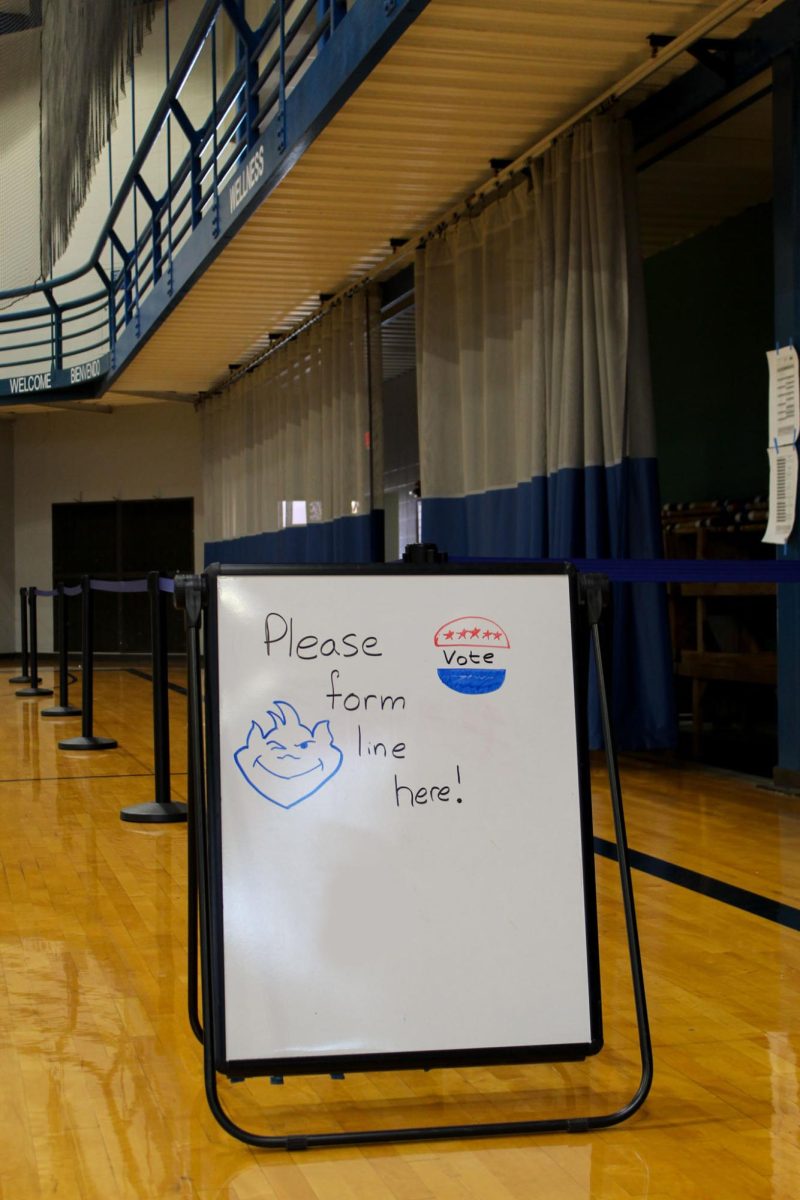The run-up to the 2024 presidential election is well underway, and SLU political organizations are busy preparing themselves for an anticipated tumultuous election cycle.
Halfway through the first GOP debate on Aug. 23, moderators Bret Baier and Martha MacCallum, both long-standing Fox News pundits, invited Alexander Diaz, a student at Catholic University in Washington, D.C, to present a question to the candidates.
Diaz asked the candidates how they plan to calm fears that the Republican Party does not care about the threat of climate change and was, in quick succession, rephrased by the moderators and almost unilaterally ignored and avoided by the candidates.
Vivek Ramaswamy, a right-wing upstart who jettisoned his closest horses (Doug Burgum and Tim Scott) with a flurry of jabs and sentiment-loaded statements during the debate, did answer, however, and provided an outright refusal of the merit of these fears. This almost certainly constituted an appeal to the larger Republican base, but it raises an important question for politically-minded college students on both sides of the aisle.
What role will students play in the 2024 elections?
While this singular question may not provide any real insight into the campaign strategies of these candidates, its significance lies in the fact that college students and recent graduates possess major potential for vote-activation.
According to The Washington Post, college students voted at record rates in the 2020 election. Yet, this time around, Democrats are struggling to rally excitement around an incumbent nicknamed Sleepy, and Republicans have entrenched themselves in increasingly unpopular issues, especially among the younger demographic.
Alexandra Leung, the President of the SLU College Republicans, was in attendance at the GOP debate in Milwaukee. She was impressed by the rhetoric of candidates such as Ramaswamy and Nikki Haley, but she feels as though many of the primary candidates are currently lacking a strategy for engaging young voters.
“The Republican party, they have to try to connect to us [students] more, because there’s a large gap… While the Democrats do a great job at dominating social media platforms and relating to younger audiences, the Republican Party does not at all,” Leung said.
While it may seem that there is little ground to be gained for Republicans in the college-aged demographic, the recent “Monitoring the Future” study, a survey on the political alignment of young people conducted since the ‘70s, found that 12th grade boys are now almost twice as likely to identify themselves as conservative-leaning.
Furthermore, the SLU College Republicans’ membership doubled with the induction of the Class of 2027, Leung said. Although she was initially surprised by the turnout, she began asking what had brought them into the organization.
“What they told me is that they came to St. Louis University looking for a Catholic, Jesuit education, and a lot of conservative Republican values follow…Roman Catholic values.”
On the other hand, the SLU College Democrats briefly went defunct during the last academic year. While Leung attributes the Republicans’ increase in attendance to an alignment of interest with incoming students from Catholic high schools, the Vice President of the College Democrats, Charles Preiss, explains it differently.
As a multi-year observer of the two organizations, Priess has seen sharp decreases in engagement through the pandemic and believes the disparity between the organizations’ rebounding periods comes down to a matter of function.
“The College Republicans do better than us because they primarily function as a social club for conservatives on campus to talk about politics without being ostracized,” Preiss said. “So they just sort of provide that outlet.”
Whatever the underlying reason is, the tides of direct partisan involvement on campus have been shifting, and, with the looming election, these phenomena could possibly serve as indicators of a larger shift in the politics of the college-aged demographic.
Both organizations have events in the works to increase membership and voter engagement.
Gavin Bena, Secretary of the College Democrats, has been actively communicating with politicians for potential events. He described the College Democrats’ focus on political action.
“There’s a signature gathering for abortion [policies] going around right now. The main way any sort of progressive policy gets passed through Missouri… it’s not through the legislature. So [we’re] just supporting the party in its efforts to stop the extreme rightward tilt in Missouri that’s been happening for the past decade.”
Alexandra Leung, on the College Republicans’ future plans, said, “Coming up, we have watch parties for the election where we’re going to watch the debate, and then talk about it afterwards. And then during our meetings, we also talk about… presidential candidates, what we think of them, how they’re doing so far, [etc.]”
Additionally, the College Democrats have plans to canvas possible swing districts within St. Louis, with a focus on West County, while the College Republicans plan to continue their weekly meetings with a focus on discussing the happenings of the primary.
Preiss, when prompted to envision an ideal SLU political ecosystem, said he hopes for more productive political conversations.
“I want more dialogue between the College Dems and Republicans… I just want more discussion between us that’s not vitriol,” Priess said.















